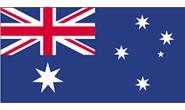Government/Policy

March 13, 2018
Turnbull Says Australia Exempt from Trump's Tariff
Written by Tim Triplett
Even though the Commerce Department has until next week to issue procedures for handling exclusion requests, Australian Prime Minister Malcolm Turnbull has announced via Twitter that his nation will be exempt from the tariffs on steel and aluminum imposed by the Trump administration March 8.
The United States’ closest trading partners, Canada and Mexico, were exempted from the 25 percent tariff on steel exports and the 10 percent tariff on aluminum exports that other countries face. But other U.S. allies are expected to line up to plead their case for relief. The Trump administration has said it will consider such appeals on a country-by-country basis. Australia appear to be first in line.
As President Trump tweeted on Friday: “[Turnbull] is very committed to having a very fair and reciprocal military and trade relationship. Working very quickly on a security agreement so we don’t have to impose steel and aluminum tariffs on our ally, the great nation of Australia.”
Turnbull responded on Monday: “What we have achieved is a commitment from the president that the tariffs on steel and aluminum will not apply to exports from Australia. This is very important for the thousands of people who rely on these industries for work.”
An exemption for Australia is particularly important to BlueScope Steel, which ships feedstock to its sister company Steelscape in the United States.
The Commerce Department has 10 days from the March 8 announcement of the tariffs to issue procedures for countries to follow in requesting exclusion from the tariffs. Presumably not via Twitter.







